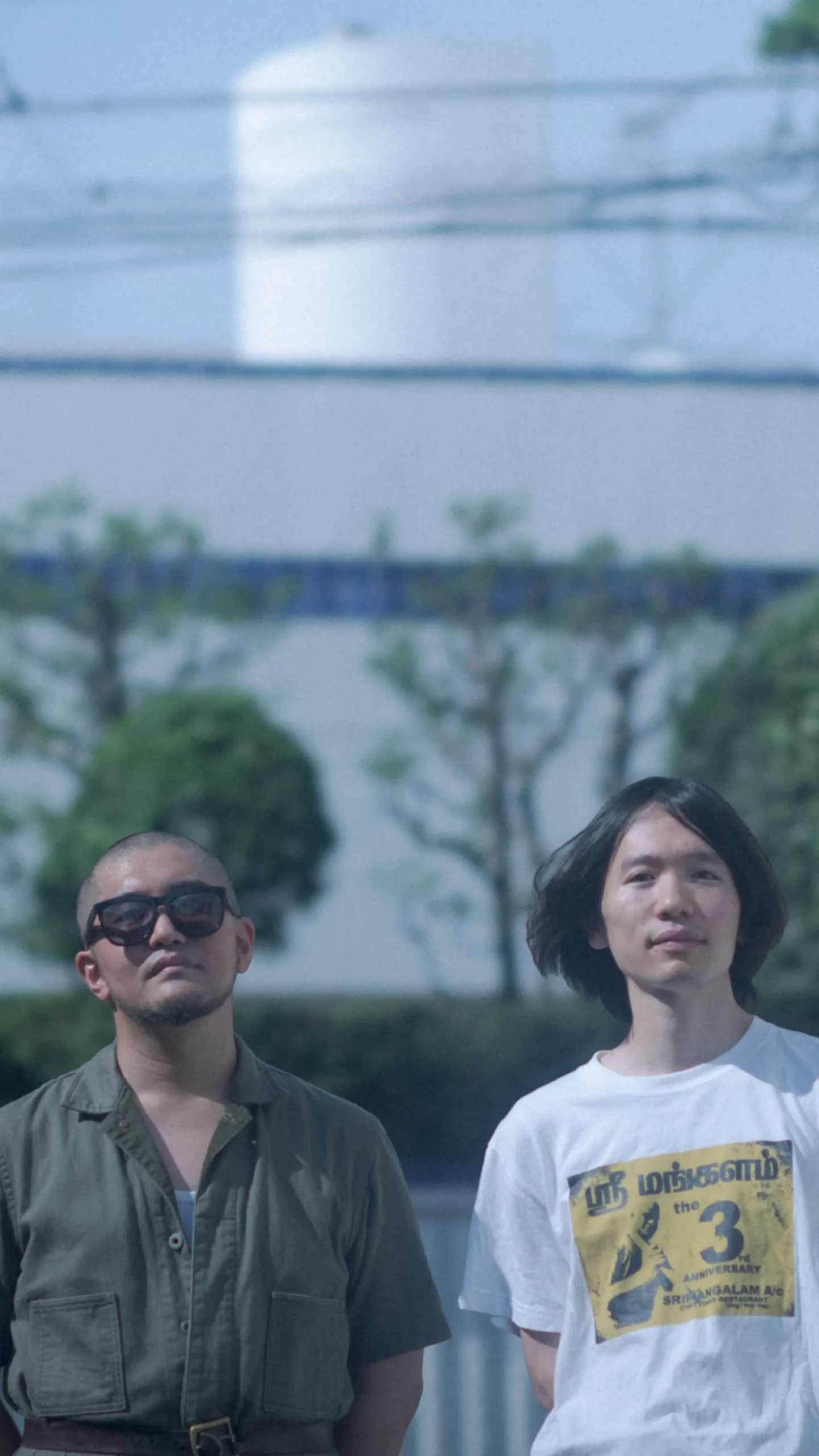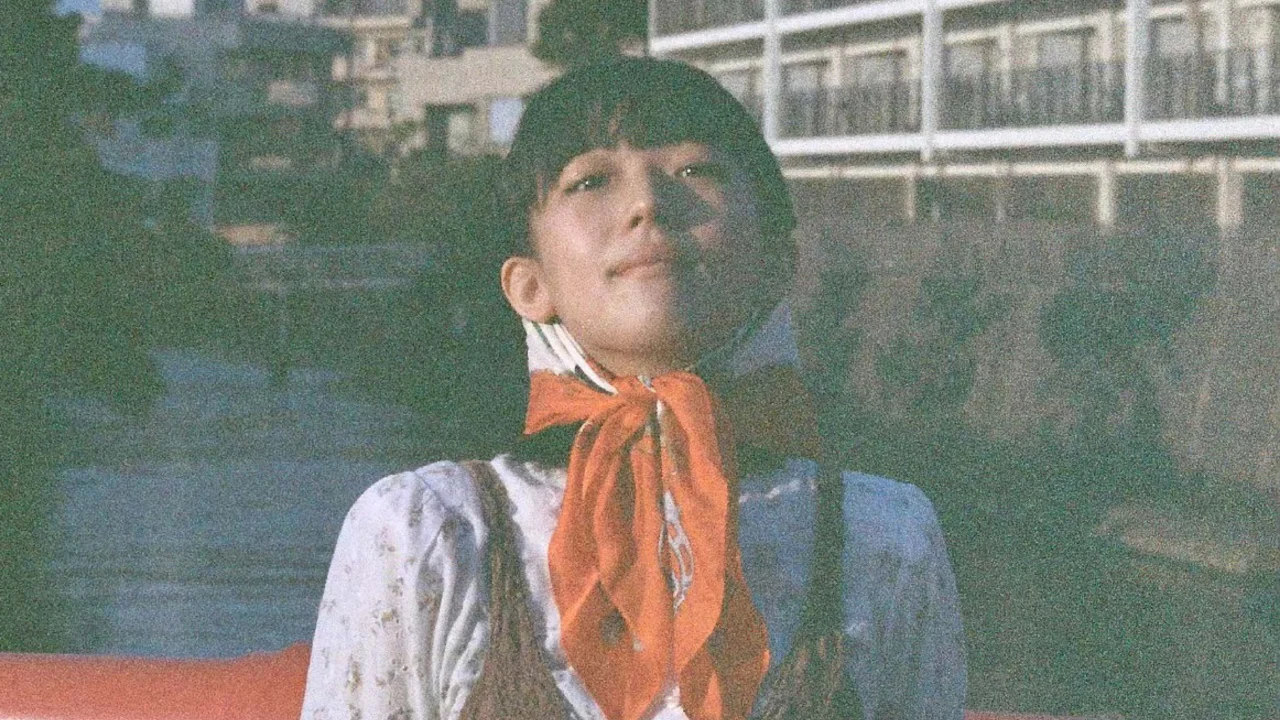“I can’t stay like this anymore.” That restless feeling drifts through the air. Sometimes it sinks into despair, sometimes it clings to memories like talismans. Yet quietly, it senses that the moment to take the next step is already here. Yuransen’s third album, MY CHEMICAL ROMANCE, captures exactly that tension and urgency.
This might be the album that documents the band stepping into adulthood, venturing into a new world and testing new ground. Until now, Yuransen’s music revolved around the enigmatic yet magnetic songwriter Itaru Uchimura (Vo/Gt), with the band shaping his creations as a collective. On MY CHEMICAL ROMANCE, the creative process has shifted. Kei Sunai (Dr) and Shuwa Nagai (Pf) join as composers, and Takuma Motomura (Ba) takes the reins on mixing. The change began when Uchimura hit a slump, but not the usual “frontman’s struggle.” As he puts it simply, “It’ll work out. It’s okay.”
He also notes, “Yuransen’s sense of place is becoming clearer and clearer.” What has transformed inside the band? And how did MY CHEMICAL ROMANCE become such a captivating and mysterious masterpiece? In conversations with Uchimura and Motomura, the answer revealed itself: a band with quiet, steady vitality and a powerful testament to the magic of creating and living together.
INDEX
Yuransen as a Safe Haven, Says Motomura
Yuransen’s new album, MY CHEMICAL ROMANCE, marks a shift from their past approach. Instead of simply arranging songs written by Uchimura, the record features compositions by Sunai and Nagai, as well as tracks mixed by Motomura, resulting in a work that feels more collectively created than ever. Listening to the album, it’s easy to sense that mixing has become almost as integral to the songwriting process as composing itself.
Motomura: That’s right. Nowadays, the boundaries between arranging and composing, or between arranging and mixing, are gradually dissolving. In that sense, mixing carries a feeling similar to composing, even if not quite at the same level.
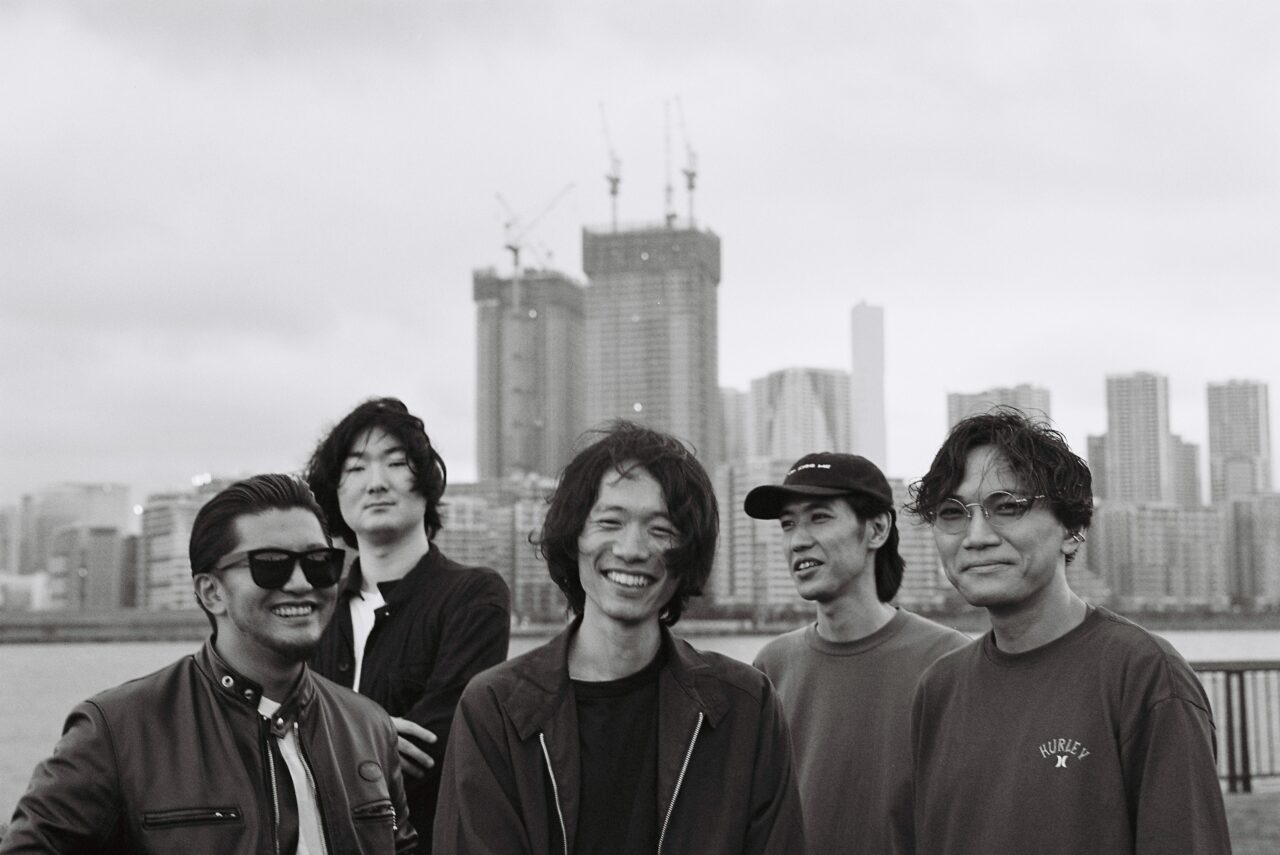
Centered around singer-songwriter Itaru Uchimura (Vo/Gt), who interprets rock, folk, and country in his own unique way, Yuransen also includes Satofumi Ito (Key), Shuwa Nagai (Pf), Takuma Motomura (Ba), and Kei Sunai (Ds). By blending diverse grooves, the band creates a sound that is at once nostalgic, fresh, and thrilling.
Why did the band feel the need to pursue this kind of change?
Uchimura: After finishing our previous album, MY REVOLUTION (2022), I had intended to start writing songs for the next album. But I struggled to create new material. I couldn’t keep up with the pace of production, and even when trying to make an album, there weren’t enough songs. Naturally, the other members started contributing their own compositions from there.
Motomura: When it became clear that Itaru was struggling a bit, Sunai and Nagai stepped in as composers. Both of them have been writing music in their own projects anyway. For us, there was always this unspoken assumption that Yuransen was a band where Itaru Uchimura wrote the songs. But then we realized, ‘Wait, the other members can write too.’ That felt like a very natural progression. Looking back now, it’s already our third album, and I think the band must have been ready for some kind of change.
Uchimura: Yes, that’s right.
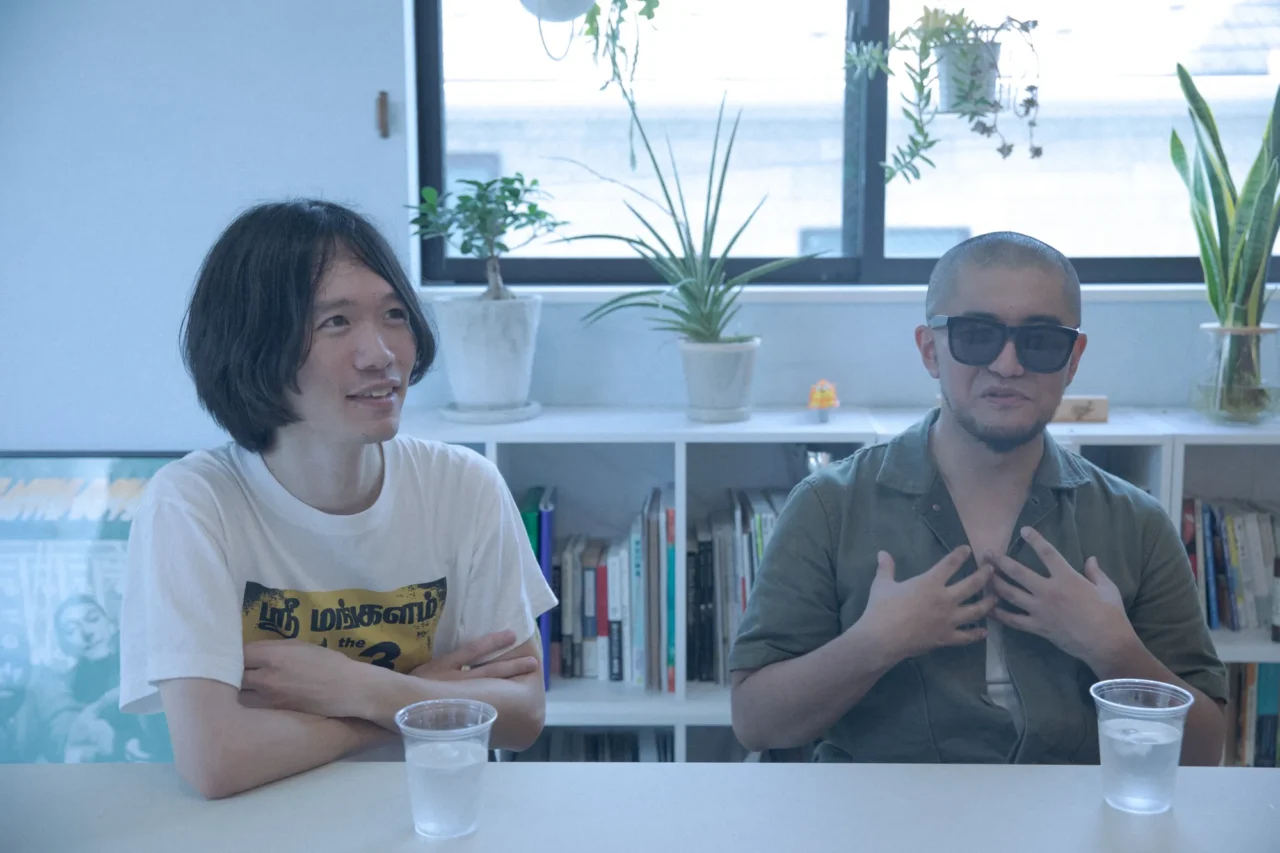
Do you feel that the change in how the songs are created has altered Yuransen’s role or meaning for you as a band?
Motomura: Not at all. For me, Yuransen has always been a stable and reassuring place. The band even acts as a kind of emotional barometer. If I ever feel down about Yuransen, it’s not because the band is struggling—it’s probably because I am. No matter how off I feel, I rarely think, “The band is out of sync.” That’s the level of trust I have in this group.
Uchimura: Musically, each of the five of us has very different tastes, and we’re all pretty even-tempered. Since we come from such different worlds, moods don’t spread in a weird way.
Motomura: Exactly. Everyone maintains their own “normal” state. Just because one person is feeling low, it doesn’t drag the others down. Each of us keeps our own pace and energy. In that sense, it’s a really rare kind of community. Sometimes friends from other bands ask me, “How do you create Yuransen’s sense of calm?” And I just have to laugh and say, “There’s nothing to it.” It’s not something you can really explain.
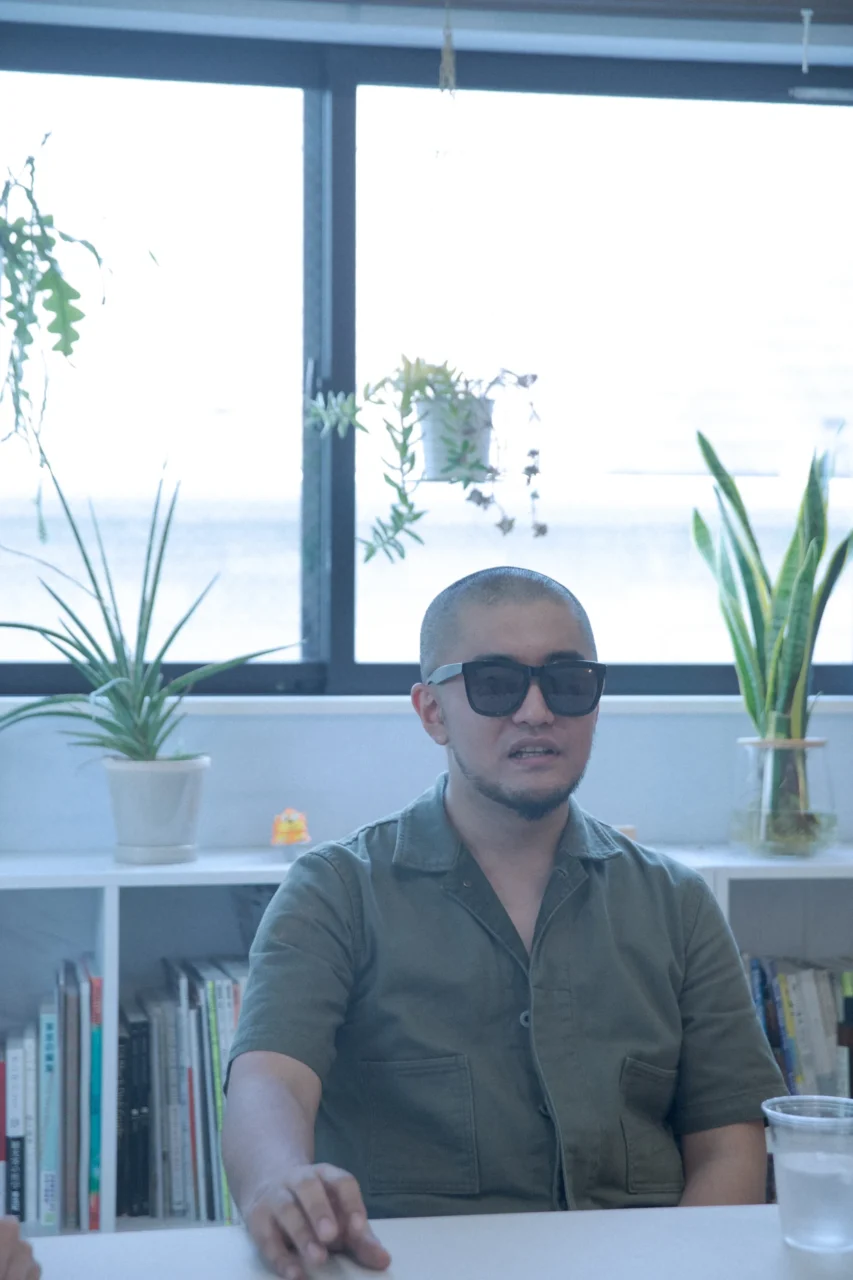
Uchimura: This time, Sunai created the overall framework for the album and also thought about the song order and thematic elements. With Sunai able to take an overarching view of the band, Motomura handling the mixing, and me focusing on the lyrics, each of us had our own role. Yuransen has this kind of dynamic where everyone can exist independently within the group. I feel that the band’s identity as a “place” becomes clearer with each project. Because of that, our trust in one another keeps growing, and we’ve naturally learned how to divide responsibilities and leave things to each other with confidence.
INDEX
The Confidence That Comes with Age: “It’s Going to Be Alright“
MY CHEMICAL ROMANCE is your first album created after entering your thirties. Do you think this stage of life has influenced how the band’s identity as a “place” has become clearer?
Motomura: Definitely. For example, Sunai made a spreadsheet to track the progress of the songs. He worked at a regular company after university, so he brings a level of professional skill that someone like me, a completely unfiltered band guy, finds impressive—like, “Wow, you can actually do that!” [laughs]. That shows how our age and accumulated experience are shaping the band. When we were younger, we were too caught up in the moment to approach making an album as a proper, organized project.
Uchimura, how do you feel your age is reflected in the band’s work?
Uchimura: Lately, I find myself thinking, “It’ll all work out!” [laughs]
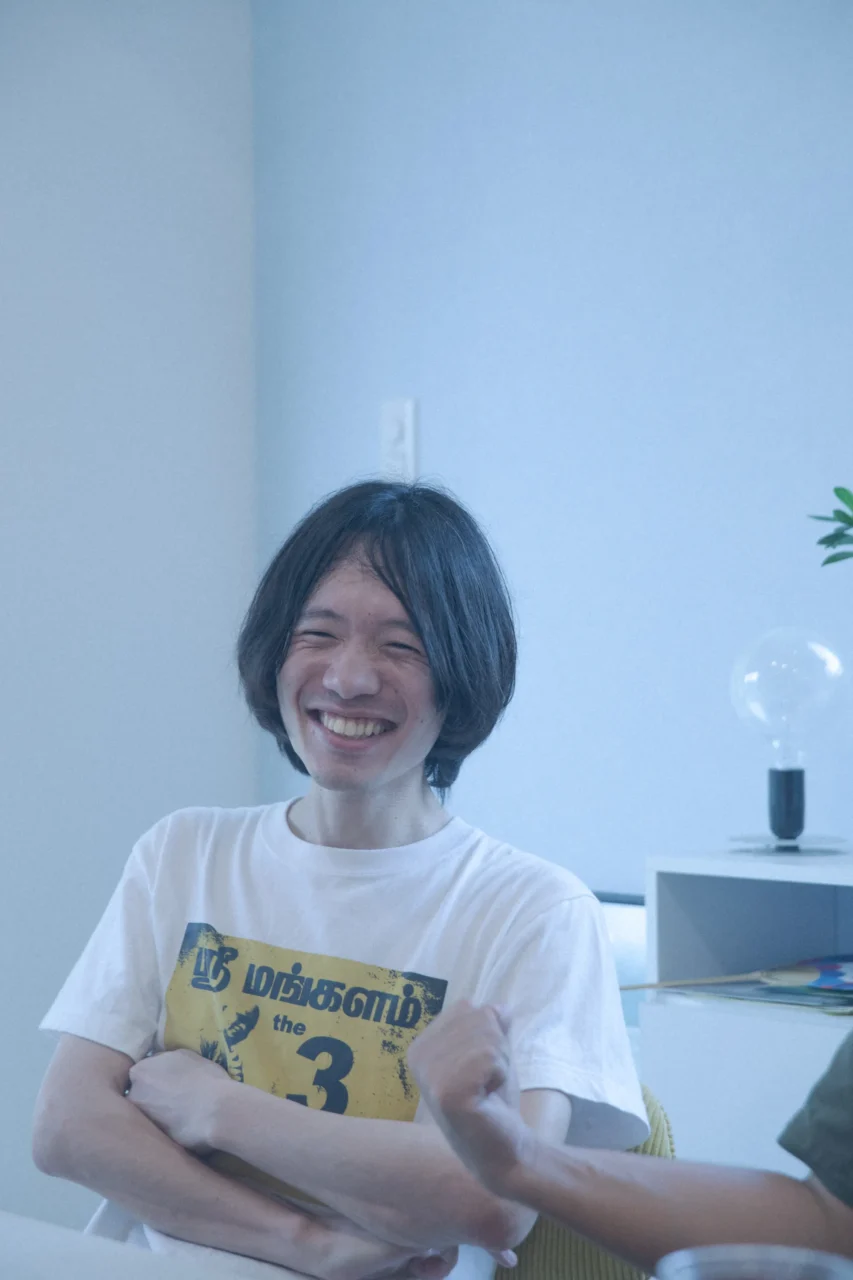
Motomura: [laughs].
Uchimura: “It’ll work out, so it’s all fine!”
Motomura: That’s true. This time, Itaru really took a broad, big-picture approach.
Uchimura: I might have been a bit irresponsible [laughs]. Like, “I can’t write the songs, but the others will handle it, so I’ll focus on the lyrics.” Getting older seems to have made me more optimistic. Is that a bad thing?
Motomura: Not at all. I think it’s a good thing.
Uchimura: Of course, it only works because everyone is there. I think, “If it’s Yuransen, it’ll be fine.” Learning to step back and take a broader view is something you probably appreciate more with age. You realize, “We’ve gotten through things before, so we’ll manage now too.” Icchan [Satofumi Ito / Key] once said, “As long as the band is at 100% when we’re all together, it’s fine. Divided among five people, that’s only 20% each, so it’s okay.”l right.
Motomura: Really? That’s what he said? Sunai and Ito have definitely improved their teamwork. And they can even make spreadsheets [laughs].
Being in a mindset of “It’ll work out” seems like a healthy mental state. But with age and experience, I imagine it’s also easier to imagine problems before they happen.
Uchimura: True. But hearing Icchan’s advice and seeing how Sunai approaches production makes me think, “Ah, this is how we get through it.” You gradually learn the ways to make things work.
Motomura: To give a concrete example, if I’m feeling unwell and can’t make it to a recording session, in the past I would have forced myself to go. But now, I can honestly say, “Please let me take the day off.” I think that’s how the meaning of “it’ll work out” expands as you get older.




